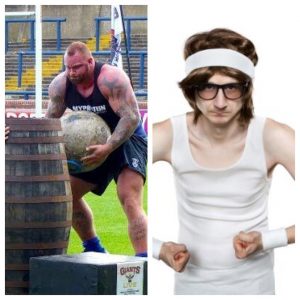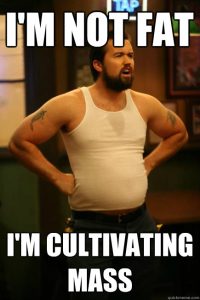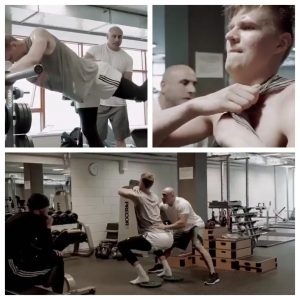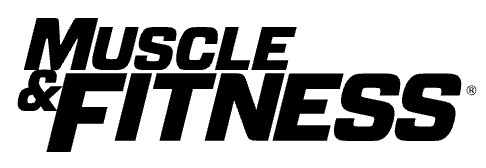How Strong is Strong Enough?

For athletes, it’s probably somewhere between these two 😉
As the field of strength and conditioning expands and grows it has become abundantly clear that there is a lot more to improving athletes than just slapping a couple more pounds on their squat or bench press. Long accepted views on certain exercises are being questioned. The church of squatting ass to grass for speed development is spawning some heretics who are gaining a following; conditioning models are being examined more closely (I’m talking to you long slow distance for baseball and softball advocates); and many athletes are figuring out that being in a relaxed, recovered state improves performance instead of just grinding yourself into dust daily.
One of the biggest questions left that has many coaches doubting their very existence is how strong is strong enough. Scary…the word strength is in the job description! Surely more strength is always better! For years I figured that if I could squat 600 or 700 pounds that I would be a better athlete, capable of dominating whatever sport I chose. Then I met a guy who actually squatted 1,000 who told me I was sorely mistaken for thinking that way. Talk about deflating. But, it was a good lesson into max strength not being the end all and be all to performance. In order to squat that type of weight I might have had to put on 100 pounds, which would have totally changed the way I moved on the field. More max strength in my situation might have turned a tall lean outside linebacker who moved well, into a fat offensive tackle that couldn’t get out of his own way.

Mac’s strength went up but speed waaay down
Movement skills in sports reign supreme. Moving with a frame that makes sense for your position is the holy grail of athletics. Running, jumping, cutting and throwing are all actual things you do in competition. Doing them well involves a blend of both general and specific physical qualities. Chasing weight room numbers and overlooking running cutting and sport skills is missing a big part of what it is to perform at a high level.
This isn’t black and white either. A nice heavy front squat or a max effort overhead press still are impressive and may have some carry over to performance on the field or court. But like all things, there is a level of diminishing returns with certain exercises and athletic improvements. Don’t get me wrong, general strength still matters. An athlete that can barely control and move their own body, let alone perform a loaded exercise USUALLY will have a tough time finding some playing time. We don’t want weak-you can’t shoot a cannonball out of a canoe.
Sure there are outliers in sport that defy this model. There is a great video that has been circulating the internet featuring Knicks star Kristaps Porzingis just getting his tail whipped by his strength coach. In it, he looks like Linda Blair in The Exorcist. Howling, convulsing and sweating with the culprit being some basic body weight squats and lunges. So there’s one guy that breaks the mold. Albeit he’s a 7’3″ highly skilled hooper who can shoot it from 30′ feet. But, it’s cool to see that he STILL realizes that he has to get stronger to improve his game.” The NBA is a grown man’s league. Strength still matters. Even if you are a Unicorn from Latvia with a frame to skill set ratio never seen before.

The big guy putting in work
So how strong is strong enough? I guess it depends on the age of the athlete (13 vs 23), the gender (male vs female), the level of competition (JV vs Pro), what is required of the sport (hockey vs soccer) and the standard height and weight for the position (point guard vs center).
If you are trying to play lineman in college football and weigh 190, you simply don’t have the weight required for that position. It’s just a reality. This doesn’t just apply to the gridiron. If a track athlete doesn’t have enough relative body strength to hold their body in certain critical running positions they will never run as well as they can. If you are gassed after running a 12 minute mile I’m guessing it’s going to be tough to play midfield for the US national soccer team.
One thing I try to ask any kid I work with is what do you think YOU need to work on. Unfortunately, height is a tough one to change. But weight, strength, speed, jumping and cutting are all trainable features. I have a college running back I work with who bench presses over 400 pounds. For him, benching 450 might not be the difference between shaking a linebacker or not. His general strength is so high that he can devote more time to running and moving that strong frame. Conversely, I have several new younger female athletes that can’t squat half of their own body weight. For them, prioritizing their strength might be of more importance at this stage in the game.
Overall, “how strong is strong enough” is a tough question to answer completely as it is very context specific. I’d say shift back to a 30,000 foot view and see just what the athlete can control. If they stack up strength wise with their peers, I’d say continue strength training but don’t obsess over it. Mix in a healthy dose of sprinting, moving, recovering, all of which together should lead to improved performance and more time succeeding in your sport.


